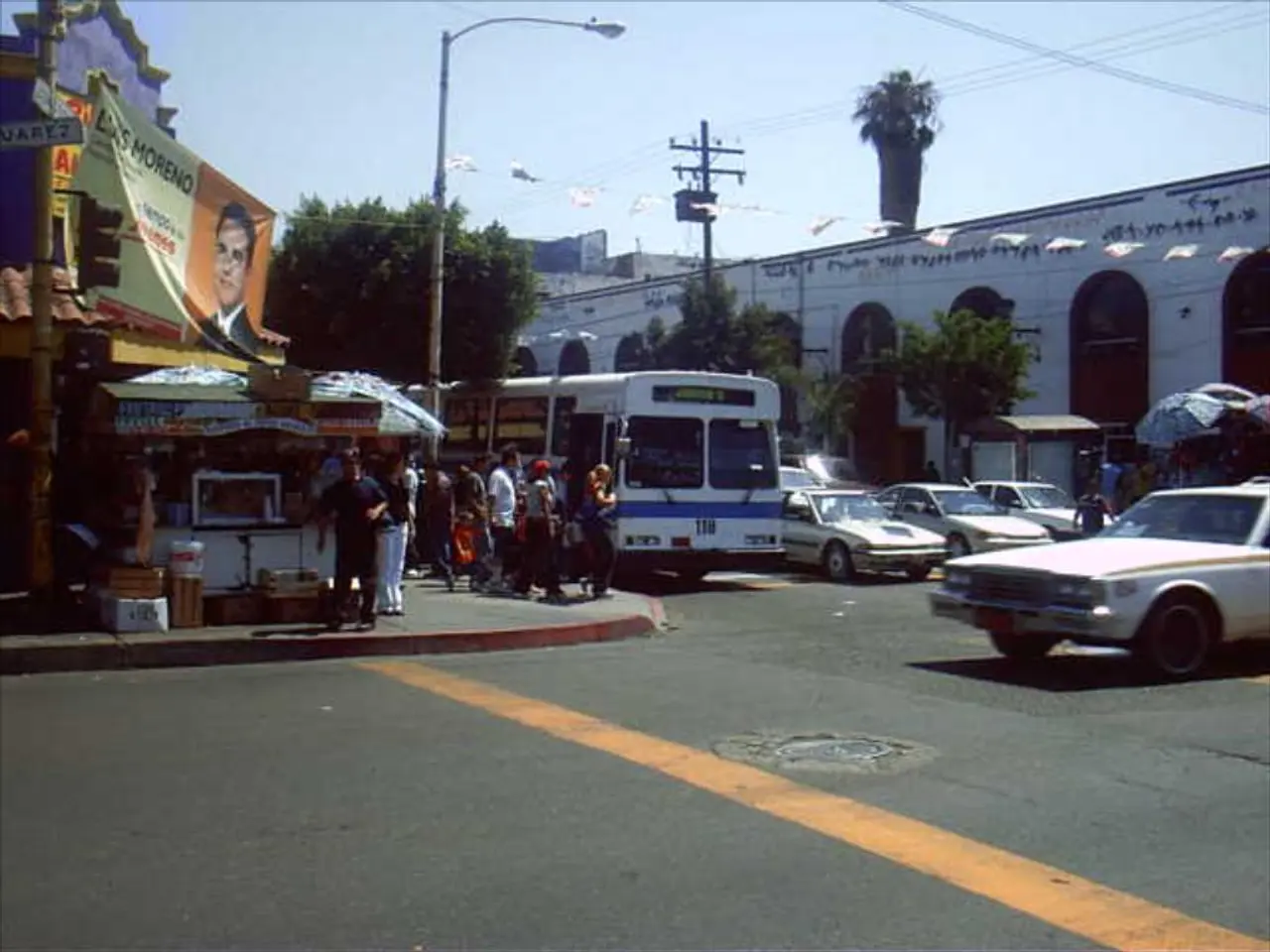Potential shortfall of billions in financing for highway projects?
Germany's Motorway Construction Delays and Funding Shortage: A Growing Concern
Germany's motorway construction and expansion projects are facing delays and a funding shortage, with concerns raised by various politicians and industry leaders.
The federal government is investing 166 billion euros in transport infrastructure during this legislative period, but a deficit of up to 15 billion euros is expected for federal highways from 2026 to 2029. The shortfall for projects to expand and build new motorways by 2029 is estimated at 5.5 billion euros, according to the Transport Ministry.
The construction prices for motorway projects have significantly increased in recent years, contributing to the funding shortage. The rail industry, too, faces a lack of funding for new and expansion projects in the coming years, despite receiving additional billions from the special fund for renovation.
State transport ministers have called on the federal government to ensure adequate funding for the expansion, maintenance, and renovation of federal transport infrastructure. Lower Saxony's transport minister, Grant Hendrik Tonne (SPD), has called for prompt clarity from the federal transport minister, while Baden-Württemberg's transport minister, Winfried Hermann (Greens), has expressed concern about lengthy procedures and local consensus affecting projects.
Hesse's minister-president, Boris Rhein (CDU), has called for an investment offensive in transport, and Bavaria's minister-president, Markus Söder, has expressed concern about the transport budget and the importance of a new line between Bavaria and Baden-Württemberg.
The special fund set up by the Bundestag will primarily support transport infrastructure renovation, with the principle being "Preservation over new construction." However, the states have demanded that the special fund's resources are additionally available and that the ministry's regular budget is not reduced.
The federal budget for 2026 will be discussed in the Bundestag for the first time next week and is due to be decided by the end of November. Germany plans to borrow 500 billion euros over the next twelve years for infrastructure and climate protection investments, with most of the money going to transport infrastructure.
The responsibility for how the transport infrastructure investment money is spent now lies with Transport Minister Schnieder. Federal Finance Minister Lars Klingbeil does not see the responsibility for the billion-euro budget as his, but that of Transport Minister Schnieder.
The A20, A1, A39, and other motorway projects in North Rhine-Westphalia, Bavaria, Hesse, Lower Saxony, Hamburg, Baden-Württemberg, Schleswig-Holstein, and Rhineland-Palatinate are under criticism from various politicians. The CEO of the main association of the German construction industry, Tim-Oliver Müller, has warned about the consequences of delayed or cancelled construction projects.
The states have urged the federal government to implement ready-to-build transport projects promptly. As the discussions around the federal budget for 2026 unfold, it remains to be seen how the funding shortage will be addressed and whether the delays in motorway construction and expansion projects will be resolved.







